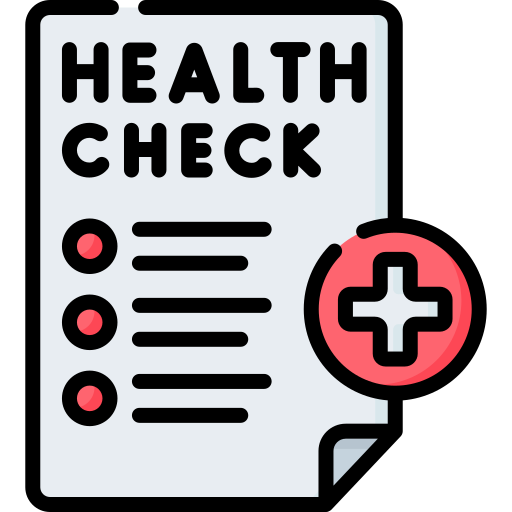Welcome to
Health With Nutrition
Your Family Nutritional Advisor
Nutrition, Exercise, Relaxation, Sleep.
These pillars work together to keep your mind and body healthy
Welcome to Health With Nutrition
Feel Free to Connect With Us
Your Family Nutritional Advisor
Unlock your potential with good Nutrition
How Healthy You Are?
Get to Know
Welcome to Health With Nutrition Health With Nutrition
Customized nutritional counseling at its Best for you for Your Family at your Doorstep
What is the Relation between Health and Nutrition ?
Health and nutrition are closely related, as proper nutrition is essential for maintaining good health. Nutrition refers to the intake of nutrients, which are the building blocks of our body, necessary for growth, development, and maintenance of tissues, and for providing energy to carry out physical and mental activities. On the other hand, health is a state of complete physical, mental, and social well-being and not just the absence of disease or infirmity.
Good nutrition is necessary for maintaining a healthy body weight, preventing chronic diseases such as heart disease, diabetes, and cancer, and improving overall physical and mental well-being. Nutrients such as protein, carbohydrates, fats, vitamins, and minerals are essential for our body to function properly and maintain good health.
A balanced diet that includes a variety of foods from all food groups such as fruits, vegetables, whole grains, lean proteins, and healthy fats can provide the necessary nutrients for good health. Conversely, poor nutrition, such as consuming too much or too little of certain nutrients or consuming too many processed and unhealthy foods, can lead to malnutrition, obesity, chronic diseases, and poor health outcomes.
What is Nutritional Counselling ?
Nutritional counseling is a process where a trained healthcare professional, such as a registered dietitian or nutritionist, provides guidance, education, and support to individuals seeking to improve their diet and nutrition for the betterment of their health and wellbeing.
During nutritional counseling sessions, the healthcare professional works with the individual to assess their dietary habits, lifestyle factors, medical history, and nutritional needs. Based on this information, they develop personalized nutrition plans and offer guidance on healthy eating habits, meal planning, and portion control.
Nutritional counseling can also involve addressing specific nutritional needs related to certain medical conditions such as diabetes, heart disease, gastrointestinal disorders, or food allergies. The healthcare professional may work with the individual’s medical team to ensure that their nutritional needs are met in conjunction with their medical treatment.
Overall, the goal of nutritional counseling is to help individuals make sustainable changes to their diet and lifestyle that will lead to improved health outcomes and overall wellbeing.
What is the Difference between Nutritional Counselling and Medical Therapy for Nutrition?
Nutritional counseling and medical therapy for nutrition are two different approaches that can be used to address nutritional issues.
Nutritional counseling involves meeting with a qualified nutritionist or dietitian to discuss your current eating habits and identify areas where improvements can be made. The nutritionist or dietitian will work with you to create a personalized nutrition plan that meets your specific needs and goals. Nutritional counseling can help you develop healthy eating habits, manage weight, and improve overall health and well-being.
On the other hand, medical therapy for nutrition involves the use of medication, supplements, or other medical interventions to address nutritional deficiencies or medical conditions related to nutrition. This approach is often used when nutritional counseling alone is not enough to address a specific health condition.
For example, medical therapy for nutrition may be used to treat malnutrition in patients with cancer or other serious illnesses.
In summary, nutritional counseling focuses on education, behavior change, and the development of healthy eating habits, while medical therapy for nutrition involves the use of medication or other medical interventions to address specific nutritional deficiencies or medical conditions. Both approaches can be effective in promoting optimal nutrition and overall health, and the choice of approach depends on individual needs and circumstances.
How is Nutritional Value Calculated?
The nutritional value of a food or beverage is calculated by analyzing the amount of nutrients it contains per serving. There are different methods for calculating nutritional values, but the most common approach is using laboratory analysis of the food’s chemical composition.
Nutrition labeling is required by law in many countries, and it usually includes information about the serving size, calories, and amounts of various nutrients, such as carbohydrates, protein, fat, fiber, vitamins, and minerals.
Overall, the nutritional value of food is determined by analyzing its chemical composition and calculating the amounts of various nutrients it contains per serving. This information is then used to create nutrition labels that provide consumers with valuable information about the food’s nutritional content.
Why do you Need Nutritional Counselling ?
There are many reasons why you may need nutritional counseling. Here are some of the most common reasons:
Managing a Chronic Condition: Nutritional counseling can be beneficial for individuals with chronic conditions such as diabetes, heart disease, high blood pressure, or gastrointestinal disorders. Nutritional counseling can help manage these conditions by creating a personalized nutrition plan that takes into account dietary restrictions and health goals.
Weight Management: Nutritional counseling can help individuals struggling with weight management by creating a balanced meal plan that provides all the necessary nutrients while helping individuals reach their weight loss or weight gain goals.
Food Allergies or Intolerances: Nutritional counseling can help individuals with food allergies or intolerances by creating a meal plan that avoids the offending foods and still provides all the necessary nutrients.
Healthy Eating Habits: Nutritional counseling can help individuals learn about healthy eating habits such as portion control, mindful eating, and making healthier food choices.
Sports Nutrition: Nutritional counseling can be beneficial for athletes looking to optimize their performance through a personalized nutrition plan that takes into account their training schedule, performance goals, and nutrient needs.
Pregnancy and Breastfeeding: Nutritional counseling can be helpful for pregnant and breastfeeding women by providing guidance on proper nutrition to support a healthy pregnancy and ensure adequate nutrient intake for the developing fetus or nursing baby.
Overall, nutritional counseling can be beneficial for anyone seeking to improve their health and wellbeing through better nutrition. A registered dietitian or nutritionist can provide personalized guidance and support to help you achieve your health goals.
I am Fit ! Till Should I take advice from Nutritional Advisor ?
Even if you consider yourself fit, seeking advice from a nutritional advisor can still be beneficial. A nutritional advisor can provide you with evidence-based recommendations to help you optimize your nutrition and maintain your current level of fitness. Here are some reasons why you might consider seeking advice from a nutritional advisor even if you are fit:
Optimize Your Nutrition: A nutritional advisor can help you optimize your nutrition to ensure that you are getting all the necessary nutrients to support your fitness goals and overall health. They can help you create a meal plan that provides the right balance of macronutrients (carbohydrates, proteins, and fats) and micronutrients (vitamins and minerals).
Improve Your Performance: Even if you are already fit, a nutritional advisor can help you optimize your nutrition to improve your athletic performance, whether you are a professional athlete or a weekend warrior. They can provide recommendations for pre-workout and post-workout meals, as well as advice on hydration and nutrient timing.
*Prevent Chronic Diseases: A nutritional advisor can help you prevent chronic diseases such as heart disease, diabetes, and cancer by ensuring that you are following a healthy and balanced diet. Even if you are fit now, following a healthy diet can help you maintain your health and prevent chronic diseases from developing later in life.
*Learn About the Latest Nutrition Research: Nutritional science is constantly evolving, and a nutritional advisor can help you stay up-to-date on the latest research and trends in nutrition. They can provide evidence-based recommendations that are tailored to your specific needs and goals.
Overall, seeking advice from a nutritional advisor can be beneficial for anyone looking to optimize their nutrition, improve their athletic performance, prevent chronic diseases, or stay up-to-date on the latest nutrition research. A nutritional advisor can provide you with evidence-based recommendations and personalized guidance to help you achieve your health and fitness goals.
Is it justified that "Prevention is Better than Cure" ?
Yes, it is justified that “Prevention is better than cure.” This phrase means that it is more beneficial to prevent a problem from happening in the first place than to try to fix it after it has occurred.
There are several reasons why prevention is better than cure.
Firstly, prevention can be more cost-effective than cure. Preventive measures are often less expensive than treating a problem that has already occurred. For example, getting regular checkups at the doctor’s office and maintaining a healthy diet can help prevent serious health problems like heart disease and diabetes, which can be very expensive to treat.
Secondly, prevention can lead to a better quality of life. Preventing a problem from occurring can help individuals avoid the pain and discomfort associated with an illness or injury. Additionally, prevention can help individuals maintain their independence and continue to participate in activities that they enjoy.
Thirdly, prevention can be more efficient than cure. Preventing a problem from occurring can save time and resources that would be required to treat the problem. For example, taking steps to prevent workplace injuries can help employees avoid time off work and reduce the need for costly medical treatment.
Overall, prevention is an essential component of maintaining good health, safety, and well-being. While there will always be situations where a cure is necessary, taking steps to prevent problems from occurring can have significant benefits for individuals and society as a whole.
What is the role of Nutritionist in Diseases Management.
Nutritionists play a crucial role in disease management by helping patients optimize their nutritional status, which can improve their overall health outcomes. Here are some of the key roles and responsibilities of a nutritionist in disease management:
*Assessment: A nutritionist will assess a patient’s nutritional status, taking into account their medical history, dietary habits, and any specific nutritional needs related to their condition.
Education: A nutritionist will educate patients on the role of nutrition in managing their disease, and provide recommendations for dietary changes that can help improve their symptoms and overall health.
Individualized Meal Planning: Based on the patient’s needs and preferences, a nutritionist can create an individualized meal plan that includes the right balance of nutrients to support their health and manage their condition.
Monitoring: A nutritionist will monitor a patient’s progress and adjust their nutrition plan as needed based on changes in their health status.
Collaboration: A nutritionist works closely with other healthcare providers, such as doctors and nurses, to ensure that patients are receiving coordinated care that addresses all aspects of their health.
Overall, nutritionists are essential members of the healthcare team when it comes to disease management. By providing education, guidance, and support around nutrition, they can help patients achieve better health outcomes and improve their quality of life.
Why do you choose "Health With Nutrition" ?
Choosing the best nutritional advisor for you can be a critical decision for your health and well-being. “Health With Nutrition” Provides Customized advice/ Solution for Client’s better health. Here are some steps Which can help you to take decision :
*Credentials: The nutritionists have appropriate credentials such as a degree in nutrition, dietetics or a related field, and is licensed or registered with a relevant professional organization. This can ensure that the nutritional advisor has the required knowledge and training to provide proper guidance.
Experience: Our nutritional advisors Who are with a proven track record of successfully working with clients with similar health concerns or goals.
Customized Consultation: Schedule an initial consultation with the nutritional advisor to discuss your specific needs and health concerns. “Health With Nutrition’ is always concern about Clients Satisfaction.
Availability and cost: Check the nutritional advisor’s availability, and pricing structure, to make sure it works for your schedule and budget.
Overall You will find that “Health With Nutrition” is the best platform to choose a qualified and experienced nutritional advisor can have a significant impact on your health and well-being. By evaluating their credentials, experience, reviews, approach, communication style, availability, and cost, you can make an informed decision to find the best advisor for you.
Nutritional Counselling & How it Works!

Nutritional counseling, also known as nutrition counseling or diet counseling, is a process where individuals receive guidance, education, and support from trained professionals to help them make informed decisions about their diet and lifestyle. It aims to promote health, prevent disease, and optimize overall well-being through personalized dietary recommendations.
Nutritional counseling is typically provided by registered dietitians or nutritionists who have expertise in the field of nutrition and dietetics. These professionals assess an individual’s dietary habits, health status, medical history, and lifestyle factors to develop personalized nutrition plans and goals.




